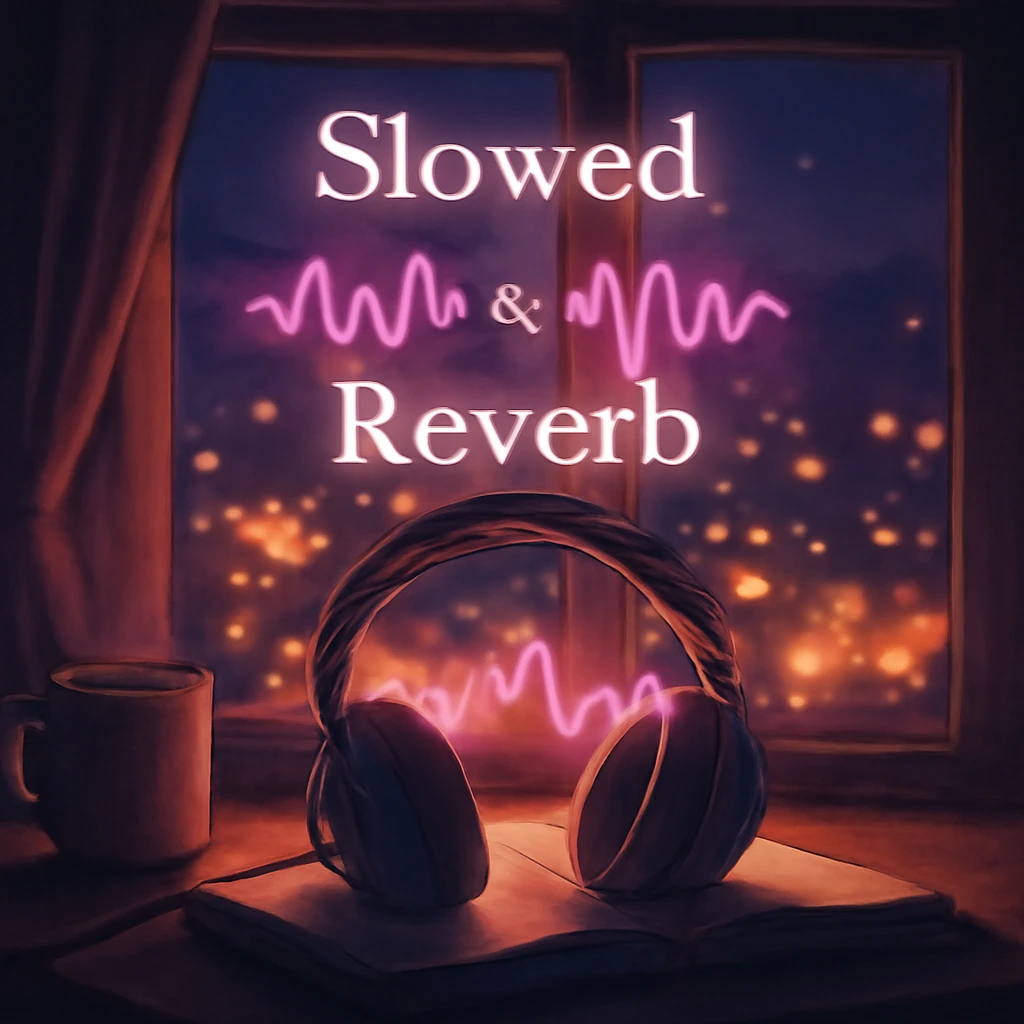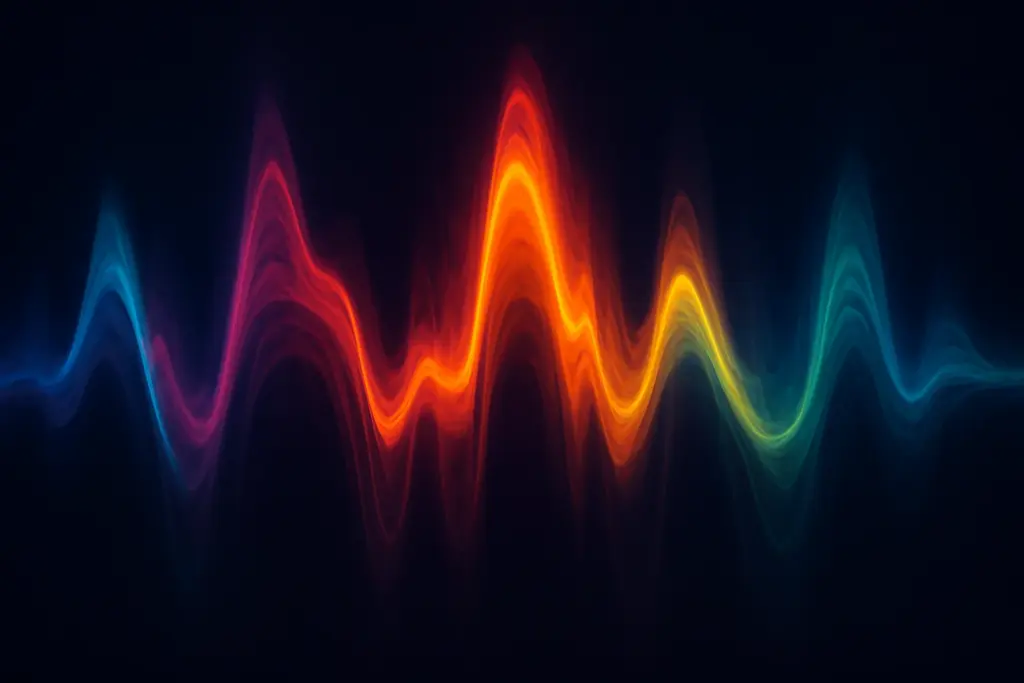Picture this: it’s late at night, city lights flicker through your window, and a familiar song plays in the background—only this time, it’s different. The tempo is languid, details shimmer through a haze, and each lyric lands like a gentle echo.
This is the sensation millions are seeking when they tune in to slowed and reverb tracks, versions of songs intentionally edited for a more reflective, immersive, and sometimes nostalgic experience.
In 2025, this digital music trend is everywhere—from TikTok challenges to charting Spotify playlists, and even official album releases by major artists. Why are musicians embracing this style? And what is it about these edits that have listeners repeatedly pressing play at 2am? To answer these questions, let’s dive deep into the world of slowed and reverb music: its roots, psychology, and the debate it’s lighting up online.
The Psychological Effects of Slowed and Reverb Music

Slowed and reverb tracks have carved a unique space in the way listeners engage emotionally with music. Multiple scientific studies and listener accounts illuminate why these versions resonate so powerfully:
- Heightened Emotional Engagement: Slowing tempo and adding reverb significantly changes emotional perception. These effects can intensify feelings of nostalgia, longing, and melancholy. Listeners report that this version of a song draws out the emotions beneath the surface—lyrics are easier to focus on, and melodies seem to linger in the mind. According to a YouTube creator, “If you take a song and slow it down, the listener will pay attention to every single word. The meaning can resonate deeper, depending on personal experiences”.
- Stress Relief and Relaxation: Scientific research shows that music with a slow tempo can decrease arousal and tension, influencing heart rate and relaxation levels. For many, slowed and reverb versions provide a soothing background for studying, winding down before sleep, or managing stress. The atmospheric quality created by reverb adds to the sense of immersion and relaxation, offering a safe soundscape for late-night introspection and solitude.
- Distorted Time Perception: Slowed music can change listeners’ perception of time, making moments feel elongated. This is especially noticeable in multimedia settings, where slow motion paired with music amplifies emotional and cognitive processing, leading to feelings of calm and altered time awareness.
Community, Culture, and Online Support Spaces
A distinctive feature of slowed and reverb music’s popularity is its thriving online community. Unlike many music trends, these tracks have fostered a digital culture centered on empathy and shared emotional experience:
- Supportive Comment Sections: Platforms like YouTube and SoundCloud have become havens for users to express vulnerability. Comments under popular slowed and reverb tracks often feature intimate confessions, stories of heartbreak, loss, and friendship, forming a virtual support group.
- Identity and Togetherness: For Generation Z in particular, these tracks became an anthem of quarantine life and post-pandemic uncertainty. The combination of familiar songs and altered tempos mirrors a collective sense of suspended time and longing for connection. As noted in an interview with a slowed and reverb creator, “People felt like the comment section was a safe place… I didn’t feel like they were strangers; I felt connected with them.”
- Entry Point to Creativity: The accessibility of slowed and reverb edits has inspired countless young producers to try their hand at music editing, nurturing a new generation of digital creatives. With only an internet connection and basic software, anyone can reinterpret music, democratizing access to music production and remix culture.
Why Are Listeners and Artists So Drawn To It?

1. Emotional Resonance and Mood
Fans often describe slow and reverb music as “chill,” “melancholic,” or “nostalgic.” Studies on musical perception reveal that adding reverb can intensify feelings of romance, mystery, and sadness in music.
The slower tempo allows listeners to catch hidden details, making familiar lyrics hit harder. As one fan shared in a heartfelt YouTube comment, “If you take a song and slow it down, the listener will pay attention to every single word… the whole song hit me like a concrete wall with 100 needles”.
2. Digital Solitude and Escapism
Strikingly, these edits are often described as “music for midnight existential crises”—tracks designed less for crowded clubs, more for quiet, personal reflection. The slowed pace grants listeners a safe soundscape for late-night introspection, heartbreak, or simply zoning out after a long day.
3. Community and Relatability
Reddit and YouTube comment sections for slowed and reverb songs often double as support groups, where listeners bond over their shared emotional journeys. “Don’t mind me, I’m totally not listening to this at 3am silently crying into my pillow…” reads one popular comment, echoed by hundreds of others sharing stories of heartbreak, nostalgia, or solidarity.
Industry Response: Why Are Artists and Labels Getting Involved?
While fan edits once dominated, artists from Billie Eilish to local indie acts are now releasing official slowed and reverb versions of their own songs. Why?
For starters, these edits are streaming goldmines: slowed and reverb remixes rack up millions of YouTube and Spotify plays. A rework of Lil Uzi Vert’s “20 Minutes” drew 17M views; Don Toliver’s “No Idea” edit saw 6.8M; Kanye West’s “Flashing Lights” rework hit 10M—all with minimal production effort.
Music labels see another perk: expanded “content.” An album can be re-marketed by releasing slowed, sped up, acoustic, or reimagined versions. This increases streaming hours, keeps fans engaged longer, and even taps new listener demographics seeking specific moods or background music for studying and relaxing.
But does everyone approve? Not quite.
The Reddit Debate: Fans and Musicians Weigh In
Positive Experiences
- “They often evoke a sense of nostalgia and transform the original feel… If someone created a slowed and reverb remix of my music that achieved acclaim, I’d be fine with it as long as I got royalties.” — Reddit user Airplade
- “Songs become emotional and introspective. As soon as you slow that waveform down, you expose new artifacts… the track is a whole new remix.” — Reddit discussion
And the Backlash
- “Slowing down and adding reverb doesn’t make it more ‘vibey’… it throws off the rhythm and muddies the mix. The trend just feels like a way to rack up easy views.” — Reddit user squarek1
- “It’s the easiest thing to do, no skill required for a gazillion views… They’re literally undoing the work of the original mixing engineer.” — /r/unpopularopinion
- “It’s tapping into nostalgia, but unless you’ve played records at the wrong speed, who really feels nostalgic about this?” — Reddit user TalkinAboutSound
Musicians on Reddit offer a practical view: as long as royalties and credit flow, most seem neutral or positive. But others worry the edits dilute their original artistic intent or muddy the mix.
How Big Is the Trend? (Data & Table)
Here’s a quick snapshot of slowed and reverb popularity:
The Science: Why Does It Sound So Good?
Reverb and Emotion
Research supports what fans intuitively feel: more reverb can heighten feelings of romance and mystery. It also has a medium effect on sadness, making tracks especially powerful for emotional release.
Slower Tempo, Greater Impact
When music slows, vocals deepen and lyrics become more prominent. This can help listeners focus and even reflect, which is why slowed and reverb soundtracks have become go-to’s for studying or late-night listening.
Are There Copyright or Legal Issues?
Absolutely. Flipping a song into a slowed+reverb version, then publicly uploading it, can trigger copyright enforcement if you don’t have proper permissions. Major platforms often pull down unauthorized remixes, but some still slip through. That’s why more artists are choosing to release official versions, ensuring everyone, including label and original creators, get paid.
Criticisms: Is It Lazy or Artistic?
One persistent Reddit criticism is that slowed+reverb edits are easy and require little creativity—“just drop a song in your DAW, slow the tempo, slap some reverb, and hit upload”.
Music professionals argue the practice undoes some of the hard work of mixing and mastering. Fans, on the other hand, see no harm in content that brings comfort, chill, or emotional clarity—especially if the original creators sign off.
Final Thoughts
Slowed and reverb music reflects a fundamental shift in how we consume and emotionally connect to music in the digital age. For some, it’s a genuine artistic extension—breathing new life and emotion into existing tracks.
For others, it’s a fleeting trend, a byproduct of viral culture and “easy” internet content. Its value likely lies somewhere between: a democratized remix genre offering both solace and controversy, demonstrating how technology continues to reshape not what we listen to, but how and why we listen at all.
10 Frequently Asked Questions
A slowed and reverb song has its tempo reduced and reverb (echo) added, making it sound more spacious and dreamy.
It’s popular for its relaxing, emotional, and sometimes nostalgic effect, aiding mood regulation, study, or late-night relaxation.
Houston’s DJ Screw in the 1990s created the “chopped and screwed” style, but YouTuber Slater popularized the current form starting in 2017.
Hip-hop and R&B benefit most due to lower vocal ranges and atmospheric production, but all genres can be transformed.
Not unless you have permission or the official release rights. Platforms take down unauthorized edits for copyright violations.
Mixed. Some appreciate the reinterpretation and extra royalties; others dislike seeing their work repurposed with minimal effort.
Slowed and reverb snippets went viral as “sounds” on TikTok, used in millions of videos for mood or storytelling.
Critics on Reddit and elsewhere argue the edits are lazy, sometimes ruin the mix, and often overshadow the artistry of the original song.

Candy is the social media manager and resident content creator at SSSlowedAndReverb. A DJ herself, she brings her deep love for slowed and reverb music into every post, blending real-world experience with internet culture to create content that resonates with fans and creators alike.